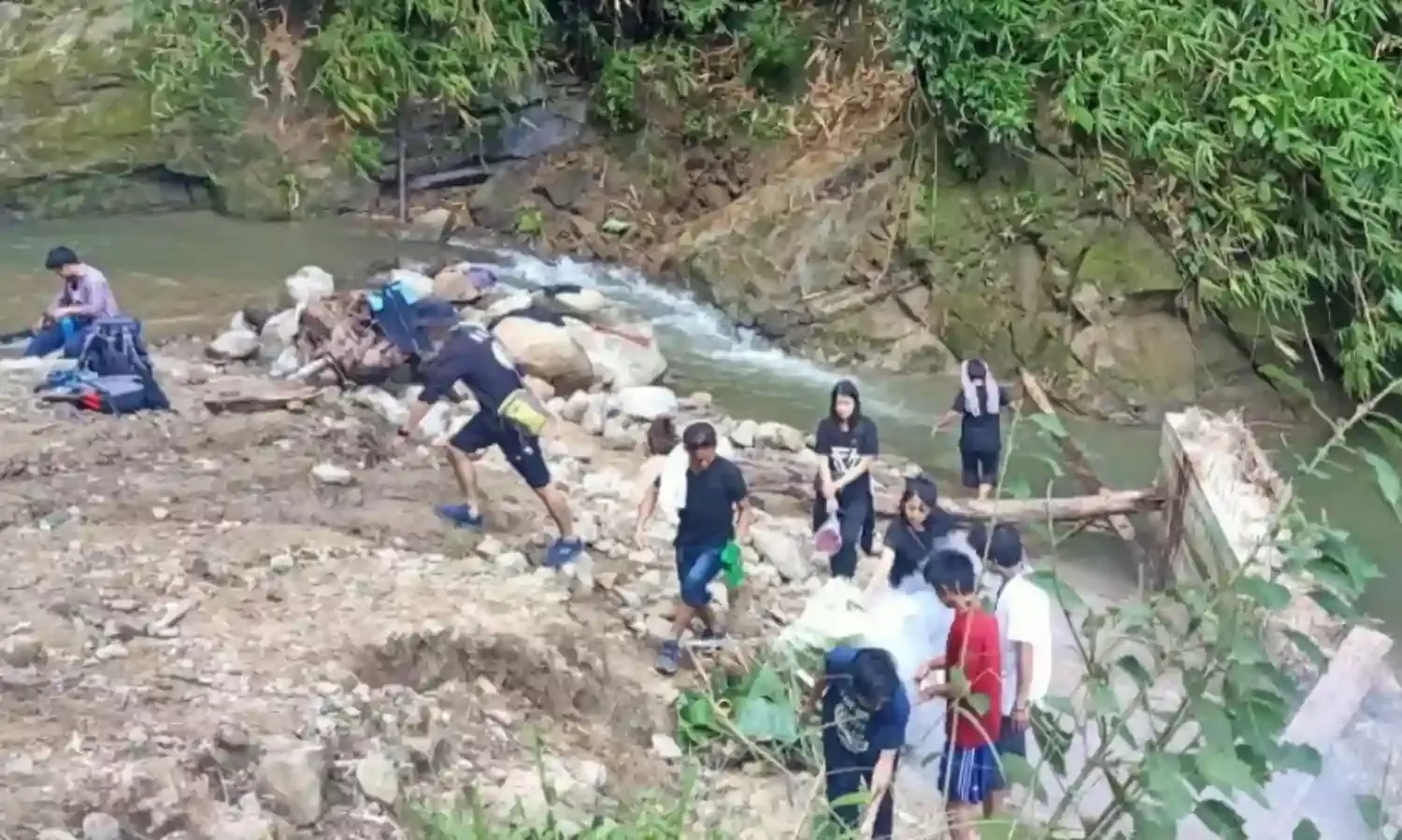A Himalayan Task - Volunteer Garbage Cleanup Begins in Hill States
The waste collected was later burnt using paraffin oil
ITANAGAR: Armed with daos (machetes) and dressed in black, a group of around 30 young men and women on Sunday congregated at the Donyi Polo waterfall in the Arunachal Pradesh capital, Itanagar. No, they weren’t there to plot any malicious crime or coup. They had gathered for quite different reasons.
Last year marked the first edition of The Himalayan Cleanup, meant to focus attention on the problem of waste in the mountains, specifically single-use plastic waste in 12 mountain states of the country.
The initiative was first held on May 26, World Environment Day. Zero Waste Himalaya, along with the Integrated Mountain Initiative, organised meetings in all the Himalayan states where they spoke of the issue of solid waste management and about the cleanup.
Individuals and organisations interested in participating signed up over the preceding month and selected one spot in their area to work on.
The campaign understands that the Himalayan region, “long portrayed as sacred, pristine and untouched, has a flip side too – of waterways clogged with plastic, and waste being rolled down hill sides and burnt.”
“The mountains are severely challenged with an ever increasing problem of waste accumulation, which is compounded by the fact that many areas in mountain regions are popular tourist destinations, tourism being a major creator of waste.
“The Himalayan Cleanup aims to bring this growing issue to the fore, by observing a day dedicated to cleaning up our mountains, and also understanding what is causing the mess.”
With modest beginnings in Arunachal, although quite successful in Sikkim and Darjeeling, a start has been made.
Campaigns were held in Roing, the Lower Dibang valley and at the Rajiv Gandhi University near the capital. Similar campaigns were organised this year.
On Sunday the MAGIC Club (Making Arunachal Green Incredible & Clean) brought together some 30 people, a mix of students and working professionals, to clean up a section of the river bank near the Donyi Polo waterfall.
The falls are a popular spot for impromptu picnics among residents. As a result, the site is littered with garbage and plastic waste.
Although not associated with the Zero Waste Himalaya and the Integrated Mountain Initiative, members of the MAGIC Club, founded in 2014, used the opportunity to come together and clean the area.
Kapu Sanjay, chief innovator of the club’s Plastic Free Mission and Plantation Drive, said that most volunteers who turned out today were college students. While they did not weigh the amount of garbage collected, Sanjay said that biodegradable and non-biodegradable waste was segregated before being disposed.
“People who visit the place throw plastic materials, water bottles, and beer cans,” the photography enthusiast told The Citizen.
The waste collected was later burnt using paraffin oil.
“I wish we had a better option but we had to use paraffin oil,” he said.
Sanjay emphasised that little changes can go a long way, but the government should formulate better policies for waste management.
“Otherwise, people sitting in AC rooms are made ambassadors and nothing comes out of it.”





